Dental x-rays are one of the most useful tools in a dentist’s diagnostic toolkit. They can identify problems such as tooth decay, cavities, impacted teeth, unerupted wisdom teeth, jawbone loss and abscesses. They can also reveal further decay beneath existing fillings before this becomes a much bigger problem to solve. Often, issues such as these are not easily identifiable with the naked eye.
Dental x-rays can play a large part in helping your dentist to spot problems inside your mouth and alleviate toothache and other discomfort. They are a key part of dental check-ups, do not hurt and take less than a second to perform. Dental x-rays help you stay on top of your oral health, as well as detect other worrying medical signs that you should follow up with your doctor.
How do Dental x-rays work?
Dental x-rays work via beams of electromagnetic radiation directed at a specific area of the body. As the beam passes through human tissue, photons (electromagnetic particles) inside it hit a receptor positioned on the other side. This is then processed to create the x-ray image. For images of specific, smaller areas, the patient will be asked to bite down on a sheet of film, or receptor, while the x-ray machine is angled close to the face. A wider, or panoramic view of the oral cavity can also be taken outside of the mouth, with the machine moving around the circumference of your head to capture a fuller picture.
Today, dental imaging results are normally displayed digitally on a screen, rather than printed out. They help the dentist check for problems, make diagnoses and plan their next move. Darker areas on a dental x-ray reveal where cavities, decay or bone loss are occurring – healthy enamel and dentine show up lighter on the resultant image. Artificial crowns, fillings etc. will appear whitest of all.
How often should I get a dental x-ray?
Your dentist will require regular dental x-rays to be taken to keep on file. Images are compared with previous versions to monitor the progress of any worrying issues. They can also confirm that the teeth and mouth are clear of any problems lurking beneath the surface – important details to be added to your patient notes. Dental x-rays are usually taken once a year during your routine dental check-ups. They can be taken more frequently if you are undergoing treatment for a long-term or ongoing issue.
You may also be asked to have them more frequently if you are a smoker or have a history of bone loss or gum disease. When patients first register at a dental practice, or are about to undergo surgery on their teeth, there may also be a need for more frequent x-rays to begin with. Children can sometimes have more regular dental x-rays in order to monitor the growth of their adult teeth, or the dentist wants to create a series of images to act as a baseline for the condition of their dental health. This can be helpful if they experience any problems, such as baby teeth not falling out on their own, impacting the adult teeth sitting underneath.
Are Dental X-Rays safe?
While the thought of being exposed to radiation via dental imaging can feel daunting, the amounts used are incredibly low – far lower than recommended safety limits. The x-ray process itself is also extremely quick (lasting a fraction of a second) and entirely painless. Modern advances in dental imaging technology have also enabled dentists to target specific areas of the mouth much more accurately, making the process even safer and simpler to perform. If you have any anxieties over safety, your dentist will happily talk you through what to expect so that you are prepared. You can also ask for a lead ‘bib’ or apron to go over your chest and abdomen to further reduce the risks of absorbing radiation into the body.
All of that said, it is strongly advised that patients who are pregnant do not expose themselves to x-rays of any kind, dental or otherwise. This is because radiation, in any dosage whatsoever, is considered dangerous for developing foetuses. Always tell your dentist in advance of any appointments if you think you might be pregnant, or are trying for a baby.

